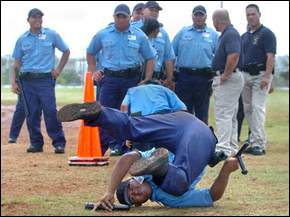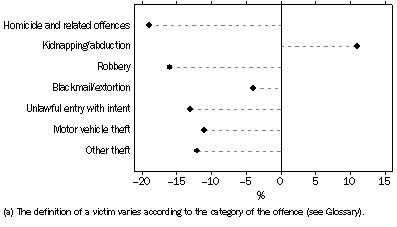I-81 is a death trap in Virginia. It is winding and hilly and filled with 18 wheelers and all the traffic travels at speeds beyond any reason. While I was in law school in Lexington (right off I-81), you would see reports of deaths almost every day and one time there was a wreck which literally piled up miles of cars.
-----
§ 46.2-862 - Reckless (Speed) - A person shall be guilty of reckless driving who drives a motor vehicle on the highways in the Commonwealth . . . (iv) in excess of eighty miles per hour regardless of the applicable maximum speed limit.
[note] It is an unwritten law in a great portion of Virginia that anyone traveling over 90 mph gets jail time.
-----
§ 46.2-852. Reckless driving; general rule - Irrespective of the maximum speeds permitted by law, any person who drives a vehicle on any highway recklessly or at a speed or in a manner so as to endanger the life, limb, or property of any person shall be guilty of reckless driving.
[note] If you make another car do something it would not have done because of your inappropriate act it usually falls under this statute.
-----
§ 46.2-817. Eluding
A. Any person who, having received a visible or audible signal from any law-enforcement officer to bring his motor vehicle to a stop, drives such motor vehicle in a willful and wanton disregard of such signal or who attempts to escape or elude such law-enforcement officer, is guilty of a Class 3 misdemeanor. It shall be an affirmative defense to a charge of a violation of this subsection if the defendant shows he reasonably believed he was being pursued by a person other than a law-enforcement officer.
B. Any person who, having received a visible or audible signal from any law-enforcement officer to bring his motor vehicle to a stop, drives such motor vehicle in a willful and wanton disregard of such signal so as to interfere with or endanger the operation of the law-enforcement vehicle or endanger a person is guilty of a Class 6 felony. It shall be an affirmative defense to a charge of a violation of this subsection if the defendant shows he reasonably believed he was being pursued by a person other than a law-enforcement officer.
[note] If you are driving recklessly and refuse to pull over it is usually charged as the felony.
-----
§ 18.2-460. Obstructing justice.
A. If any person without just cause knowingly obstructs . . . any law-enforcement officer in the performance of his duties as such or fails or refuses without just cause to cease such obstruction when requested to do so by such . . .law-enforcement officer, he shall be guilty of a Class 1 misdemeanor.
B. If any person, by threats or force, knowingly attempts to intimidate or impede . . . any law-enforcement officer, lawfully engaged in his duties as such . . . he shall be deemed to be guilty of a Class 1 misdemeanor.
-----
Now the Facts:
New Jersey deputies, returning from New Orleans, were traveling up I-81. They were in a convoy, in the passing lane, traveling 95 mph, using their lights, and forcing people off the road. A local deputy tries to pull them over. Some stop; others continue down the road. The stop was initially hostile but eventually the local deputy extends the courtesy and lets them go with a warning. The New Jersey sheriff calls and rips the Virginia deputy (apparently forgetting that nowadays calls can be taped):
"If you think that that's not a disgrace, you should take that badge off your shirt and throw it in the garbage," Speziale said. "This is unacceptable, and I'll tell you what, I hope I get the opportunity to show you the same courtesy up here in New Jersey."Rumor has it that this stop was worse than it is portrayed but I cannot confirm that. Rumor also has it that Virginia law enforcement is being warned to respond en masse in these situations.
Speziale told Roane that "law enforcement is all about supporting each other" and said he was reporting the Augusta County stop to the National Sheriffs' Association.
Speziale ended the call after cutting short Roane's attempt to detail the incident. "I don't talk to deputies," the New Jersey sheriff said.
Hopefully, this is an anomaly. Another convoy of 80 New York law enforcement cars was stopped on the same day but no fuss has been made about that.
I have spoken to some law enforcement types about this and gotten pretty much the same reaction which was summed up by a trooper today who finished the conversation by shrugging his shoulders and saying, "Yankees."









